
World Journal of Hepatology
Scope & Guideline
Innovating hepatology research for tomorrow's treatments.
Introduction
Aims and Scopes
- Liver Diseases and Disorders:
The journal publishes research on various liver diseases, including hepatitis, cirrhosis, hepatocellular carcinoma, and metabolic liver diseases, exploring their pathogenesis, epidemiology, and clinical management. - Innovative Therapeutic Approaches:
Research on novel therapeutic strategies, including pharmacological treatments, surgical interventions, and emerging therapies such as immunotherapy and gene therapy for liver diseases. - Diagnostic Advances:
Focus on advancements in diagnostic methodologies, including imaging techniques, biomarkers, and non-invasive assessments for liver diseases, aiding in early detection and management. - Microbiome and Liver Health:
Exploration of the gut-liver axis, including the role of gut microbiota in liver diseases and the potential of microbiome modulation as a therapeutic strategy. - Public Health and Epidemiology:
Studies that address the public health implications of liver diseases, including epidemiological studies, health disparities, and the impact of socio-economic factors on liver health. - Clinical Outcomes and Quality of Life:
Research on patient outcomes, quality of life assessments, and the psychosocial aspects of living with liver diseases, including post-transplant care.
Trending and Emerging
- Metabolic Dysfunction-Associated Liver Diseases:
An increased focus on metabolic dysfunction-associated fatty liver disease (MAFLD) highlights an evolving understanding of liver diseases linked to metabolic disorders, with implications for diagnosis and treatment. - COVID-19 and Liver Health:
Research relating to the impact of COVID-19 on liver health, including liver injury in infected patients and management strategies for liver disease during the pandemic, has surged. - Immunotherapy and Precision Medicine:
There is a growing interest in immunotherapy for hepatocellular carcinoma and other liver malignancies, alongside precision medicine approaches tailored to individual patient profiles. - Gut-Liver Axis Research:
Emerging studies on the interplay between gut microbiota and liver health suggest a significant role of the microbiome in liver disease progression and treatment responses. - Artificial Intelligence and Machine Learning:
The application of AI and machine learning in predicting outcomes and improving diagnostic accuracy in liver diseases is gaining traction, showcasing technological advancements in hepatology.
Declining or Waning
- Traditional Herbal Remedies:
Research on traditional herbal treatments for liver diseases has decreased, reflecting a shift towards more evidence-based pharmacological approaches and clinical trials. - Basic Science Research:
While foundational research remains important, there has been a noticeable decline in studies focused solely on basic science without clear clinical implications, as the journal moves towards more translational research. - Single-Center Case Reports:
The frequency of single-center case reports has declined, possibly due to a preference for larger, multicenter studies that provide more generalizable data.
Similar Journals
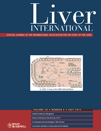
LIVER INTERNATIONAL
Advancing hepatology through cutting-edge research.LIVER INTERNATIONAL, with its ISSN 1478-3223 and E-ISSN 1478-3231, is a prestigious peer-reviewed journal published by Wiley in the United Kingdom. Established in 2003, it focuses on advancing the field of hepatology, covering a broad spectrum of topics including liver disease, hepatocellular carcinoma, and transplantation. Ranking #10 out of 82 in the Scopus category for Medicine - Hepatology and boasting a remarkable 88th percentile, LIVER INTERNATIONAL has secured its reputation as a leading journal, recognized as Q1 in the 2023 category quartiles. The journal emphasizes accessibility, offering an open access option to ensure that critical research findings reach a wider audience. By facilitating the dissemination of high-quality research, LIVER INTERNATIONAL plays a vital role in shaping contemporary hepatological discourse and bridging academic inquiry with clinical practice, making it an essential resource for researchers, healthcare professionals, and students alike.
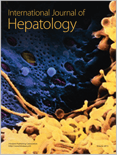
International Journal of Hepatology
Championing innovative discoveries in hepatology.The International Journal of Hepatology, published by HINDAWI LTD, is a premier open-access journal dedicated to the field of hepatology. Since its inception, this journal has championed the dissemination of cutting-edge research and reviews pertaining to liver health, diseases, and therapies. With an ISSN of 2090-3448, the journal has been committed to open-access publishing since 2011, ensuring that vital knowledge is readily available to researchers, clinicians, and students worldwide. Based in Egypt, this journal stands out in its category, achieving a Q3 ranking in 2023 within the scope of Hepatology by Scopus, which ranks it #43 out of 82 in the field. The International Journal of Hepatology offers a platform for significant findings and discussions that influence clinical practices and foster new research directions, thus playing a crucial role in advancing the understanding of liver diseases and their management.

Hepatitis Monthly
Illuminating the path to innovative hepatitis solutions.Hepatitis Monthly, published by BRIEFLAND in the Netherlands, is a pivotal journal in the fields of hepatology and infectious diseases. Established in 2007, it continues to make significant contributions to the understanding and management of hepatitis and related viral infections with a publication timeline extending through to 2024. Aiming to disseminate high-quality research, the journal serves as a forum for groundbreaking studies and innovations essential for healthcare professionals, researchers, and students alike. While it currently holds Q4 rankings in both hepatology and infectious disease categories, its ongoing commitment to addressing pressing health issues makes it an important resource in the academic community. Although it operates under a traditional access model, Hepatitis Monthly not only publishes original research articles, reviews, and case studies but also encourages the exchange of knowledge that helps shape future research directions and clinical practices. As it continues to explore the complexities surrounding viral hepatitis, this journal invites researchers to contribute to its mission of advancing scientific understanding and improving patient care.

Clinical Gastroenterology and Hepatology
Pioneering Research for Tomorrow's Gastroenterological SolutionsClinical Gastroenterology and Hepatology, published by Elsevier Science Inc, stands as a leading journal in the fields of gastroenterology and hepatology. With an ISSN of 1542-3565 and an E-ISSN of 1542-7714, this esteemed publication has earned its place in the top quartile (Q1) of both gastroenterology and hepatology categories as of 2023, ranking 6th out of 167 and 7th out of 82 respectively. The journal aims to disseminate innovative research, clinical studies, and case reports that advance the understanding and treatment of gastrointestinal and liver diseases. Targeted towards researchers, healthcare professionals, and students, it provides crucial insights into emerging therapies and medical advancements. Clinical Gastroenterology and Hepatology is not only a pivotal resource for contemporary gastroenterological research but also fosters collaboration and knowledge-sharing within the medical community. With a converging publication history from 2003 to the present, the journal continues to build on its solid foundation of scientific excellence and relevance.
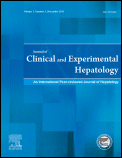
Journal of Clinical and Experimental Hepatology
Exploring the frontiers of hepatology for a healthier tomorrow.The Journal of Clinical and Experimental Hepatology, published by Elsevier - Division Reed Elsevier India Pvt Ltd, is a premier platform dedicated to advancing the field of hepatology. With an ISSN of 0973-6883 and an E-ISSN of 2213-3453, this journal has gained recognition for its impactful contributions to both clinical practice and scientific research in the domain of liver health. Ranking in the Q2 quartile for Hepatology in 2023 and positioned at 33rd out of 82 in Scopus’s Hepatology category, it reflects a robust impact factor and a commitment to publishing high-quality, peer-reviewed articles. Researchers, clinicians, and students can engage with a wealth of open-access content covering the latest advancements, challenges, and insights in hepatology, as the journal aims to disseminate knowledge from 2011 through 2025. Join the community of experts as we explore critical developments in the understanding and treatment of liver diseases.
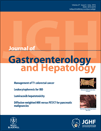
JOURNAL OF GASTROENTEROLOGY AND HEPATOLOGY
Exploring breakthroughs in gastroenterology and hepatology.Welcome to the JOURNAL OF GASTROENTEROLOGY AND HEPATOLOGY, an esteemed publication in the field of gastroenterology and hepatology, proudly published by WILEY. Established in 1986, this journal serves as a crucial platform for researchers, healthcare professionals, and students, presenting groundbreaking research and comprehensive reviews that drive advances in understanding and treating gastrointestinal and liver diseases. With a strong reputation evidenced by its Q1 ranking in gastroenterology and Q2 ranking in hepatology, this journal ranks impressively in the Scopus metrics - positioned at #22 out of 167 in gastroenterology and #21 out of 82 in hepatology, reflecting its contribution to scholarly excellence. Although it does not offer open access options, the journal’s rich archive and diverse topics make it indispensable for those dedicated to improving patient outcomes in these critical areas of medicine. Whether you are a seasoned researcher or an aspiring medical professional, engaging with this journal will keep you at the forefront of the latest developments and emerging trends in gastroenterology and hepatology research.

Korean Journal of Gastroenterology
Uniting Experts for Enhanced Digestive Health SolutionsKorean Journal of Gastroenterology (ISSN: 1598-9992, E-ISSN: 2233-6869), published by the Korean Society of Gastroenterology, has been a premier outlet for research and advancements in the field of gastroenterology since its inception in 1968. This open-access journal, based in South Korea, fosters a global dialogue on gastrointestinal health, embracing contributions from a diverse array of disciplines within medicine. It is currently ranked in the Q4 quartile for miscellaneous medicine and holds a Scopus rank of #323 out of 636 in general medicine, reflecting its commitment to publishing impactful research despite its relatively recent establishment in high-impact metrics. With a continuous publication timeline extending through to 2024, the journal aims to enhance understanding of gastrointestinal disorders and promote innovative treatments, making it an essential resource for researchers, clinicians, and students alike who seek to stay abreast of the latest developments and clinical applications in gastroenterology.
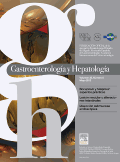
Gastroenterologia y Hepatologia
Empowering healthcare professionals with high-quality research.Gastroenterologia y Hepatologia, published by Elsevier España SLU, is a distinguished journal dedicated to advancing the fields of gastroenterology and hepatology. With a publication history spanning from 1982 to 2024, this journal is recognized for its commitment to disseminating high-quality research and reviews that address critical developments in the diagnosis and treatment of gastrointestinal and liver diseases. Although it currently ranks in the Q3 quartile in both gastroenterology and hepatology based on the 2023 metrics, the journal continues to attract a global audience of researchers, healthcare professionals, and students eager to engage with the latest findings. The journal is accessible in both print and electronic formats (ISSN: 0210-5705), making its valuable insights reachable to a broad spectrum of subscribers. By fostering a platform for rigorous scholarly communication, Gastroenterologia y Hepatologia plays a vital role in shaping the future of research in these essential medical fields.
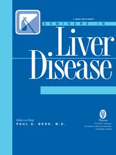
SEMINARS IN LIVER DISEASE
Fostering insights for liver health innovation.SEMINARS IN LIVER DISEASE is a premier journal dedicated to advancing the field of hepatology, published by THIEME MEDICAL PUBL INC. Established in 1981, it has become a respected resource within the academic community, providing high-quality peer-reviewed articles that cover a broad range of topics related to liver diseases. With an impressive impact factor and recognized as a Q1 journal in the hepatology category, it ranks 17th out of 82 journals in the field, placing it in the top 21% of its category according to Scopus rankings. Although it does not offer open access, the journal’s rigorous standards and extensive network ensure that it reaches a wide audience of clinicians, researchers, and students, fostering knowledge and innovation in liver disease management. The journal's objectives focus on disseminating critical insights and promoting informed discussions that can pave the way for future research and clinical advancements in hepatology.
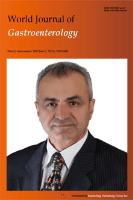
WORLD JOURNAL OF GASTROENTEROLOGY
Championing high-quality studies in gastroenterology.WORLD JOURNAL OF GASTROENTEROLOGY, published by BAISHIDENG PUBLISHING GROUP INC, stands at the forefront of gastrointestinal research, providing a critical platform for the dissemination of high-quality studies in the field. With an impressive impact factor reflected in its Q1 rankings in both Gastroenterology and Miscellaneous Medicine, this journal is recognized for its rigorous peer-review process and commitment to advancing knowledge and practices related to digestive health. Covering comprehensive scopes from clinical advancements to innovative therapies, the journal serves an essential role for researchers, clinicians, and students, enabling them to stay updated on the latest developments and findings from 1998 through 2024. The open access model facilitates broader accessibility, ensuring that groundbreaking research reaches a global audience. The journal's ranking within the top 15% of Scopus demonstrates its significant contribution to the academic community, making it a valuable resource for advancing the science of gastroenterology.